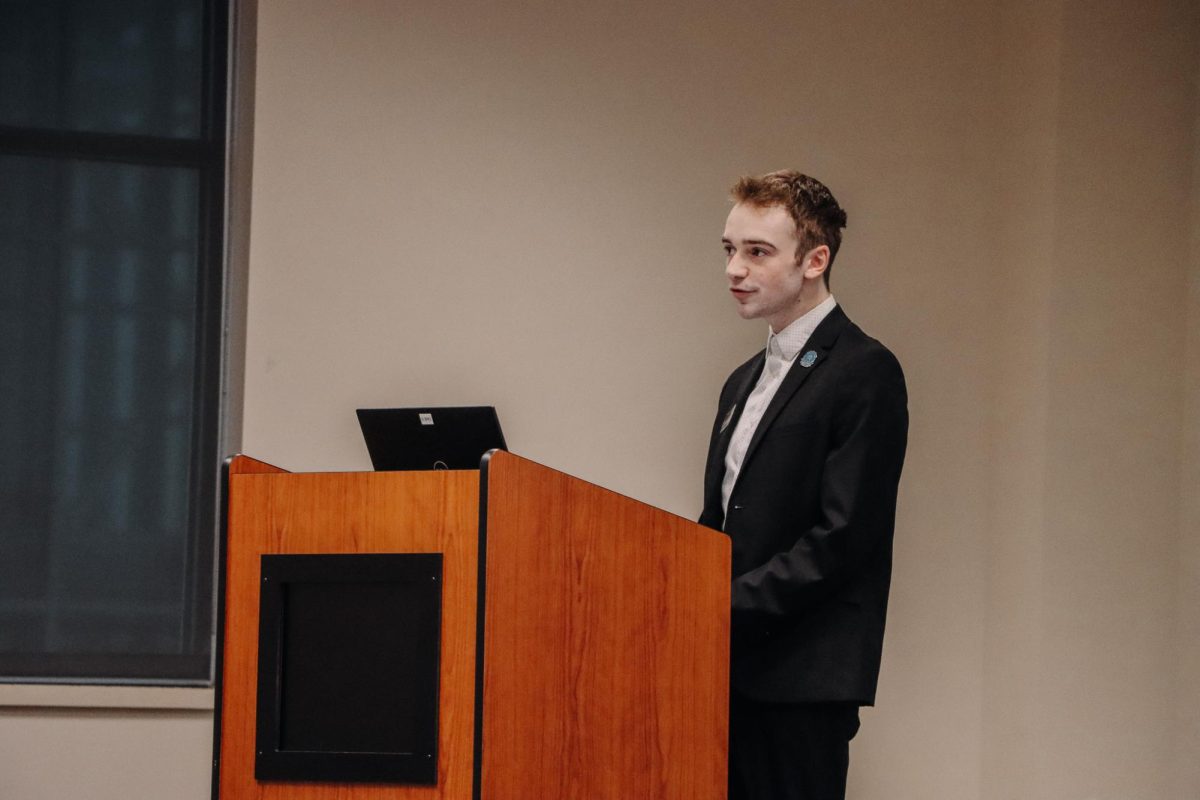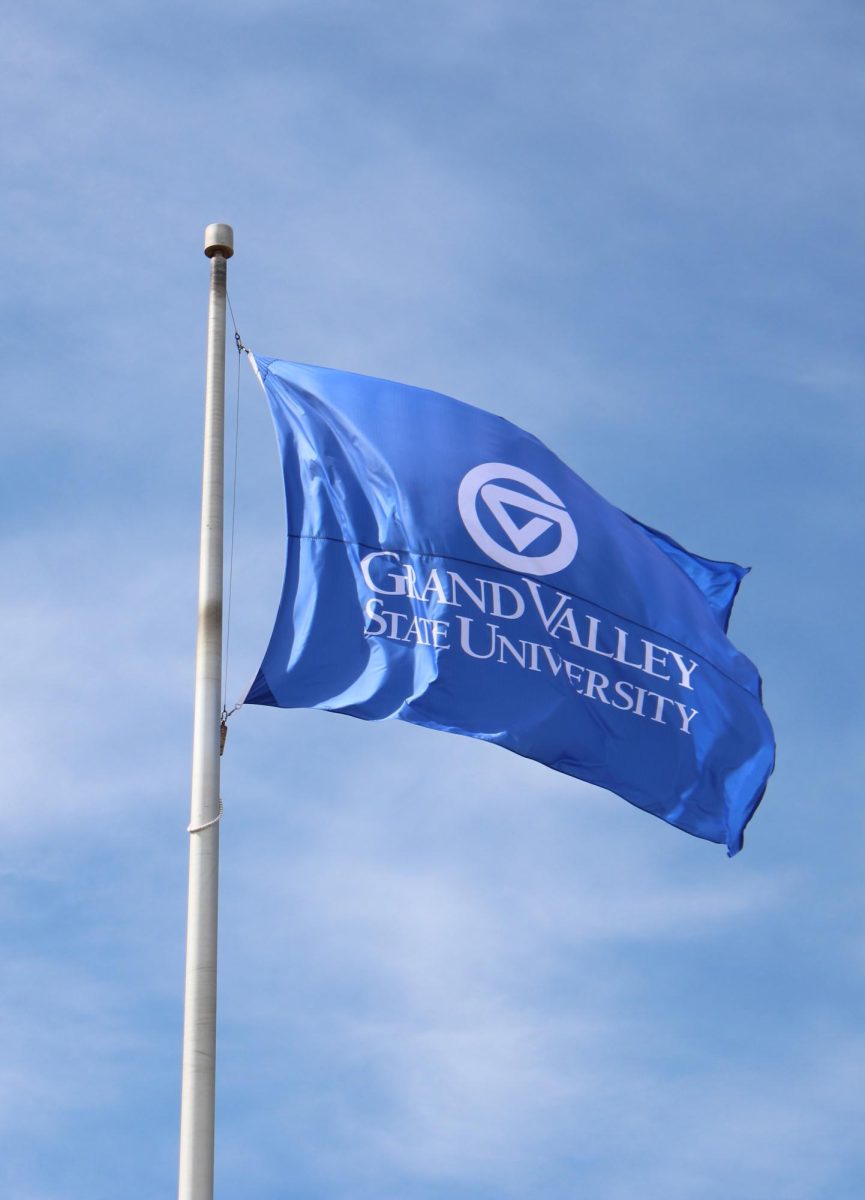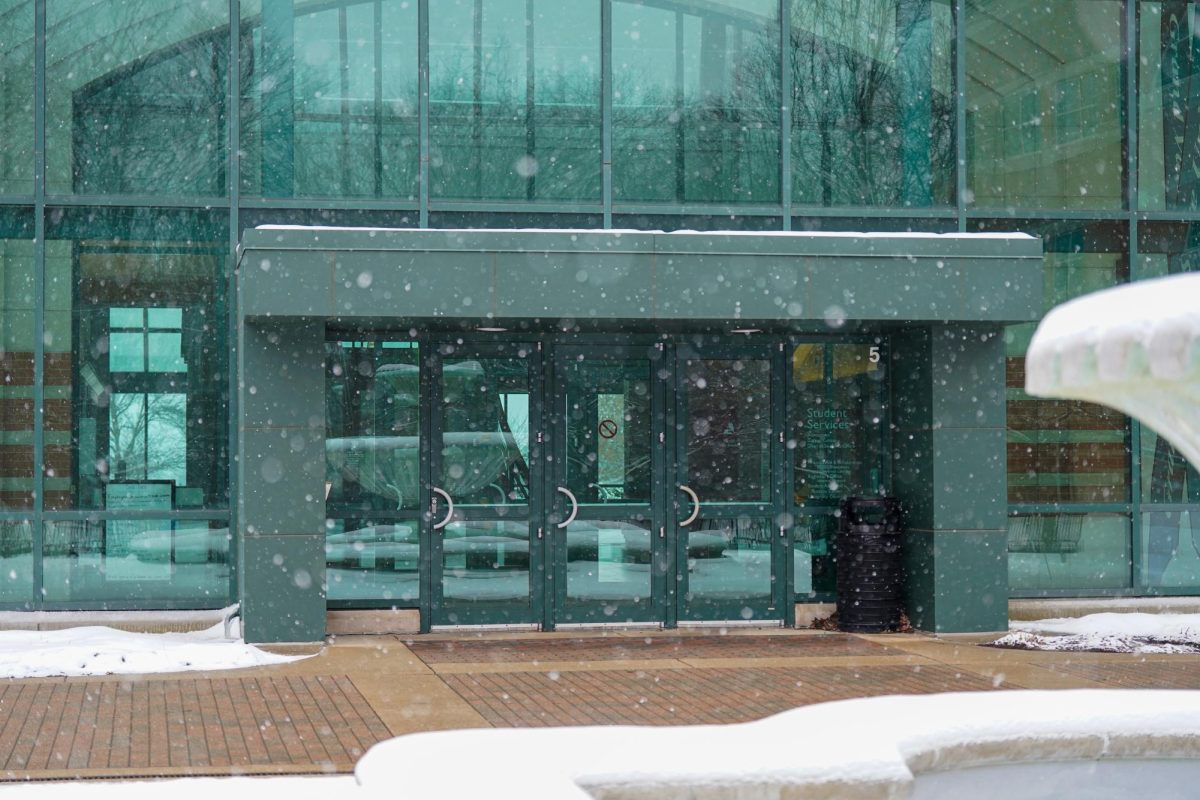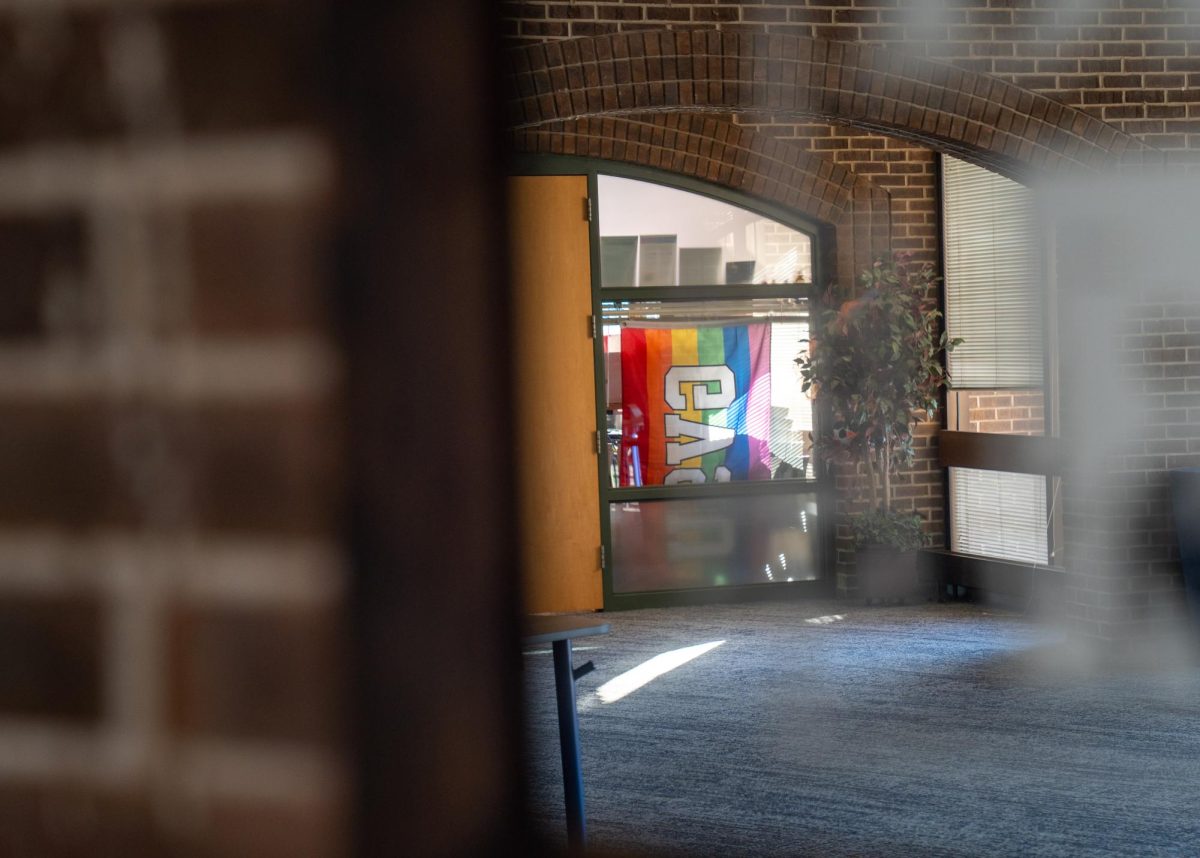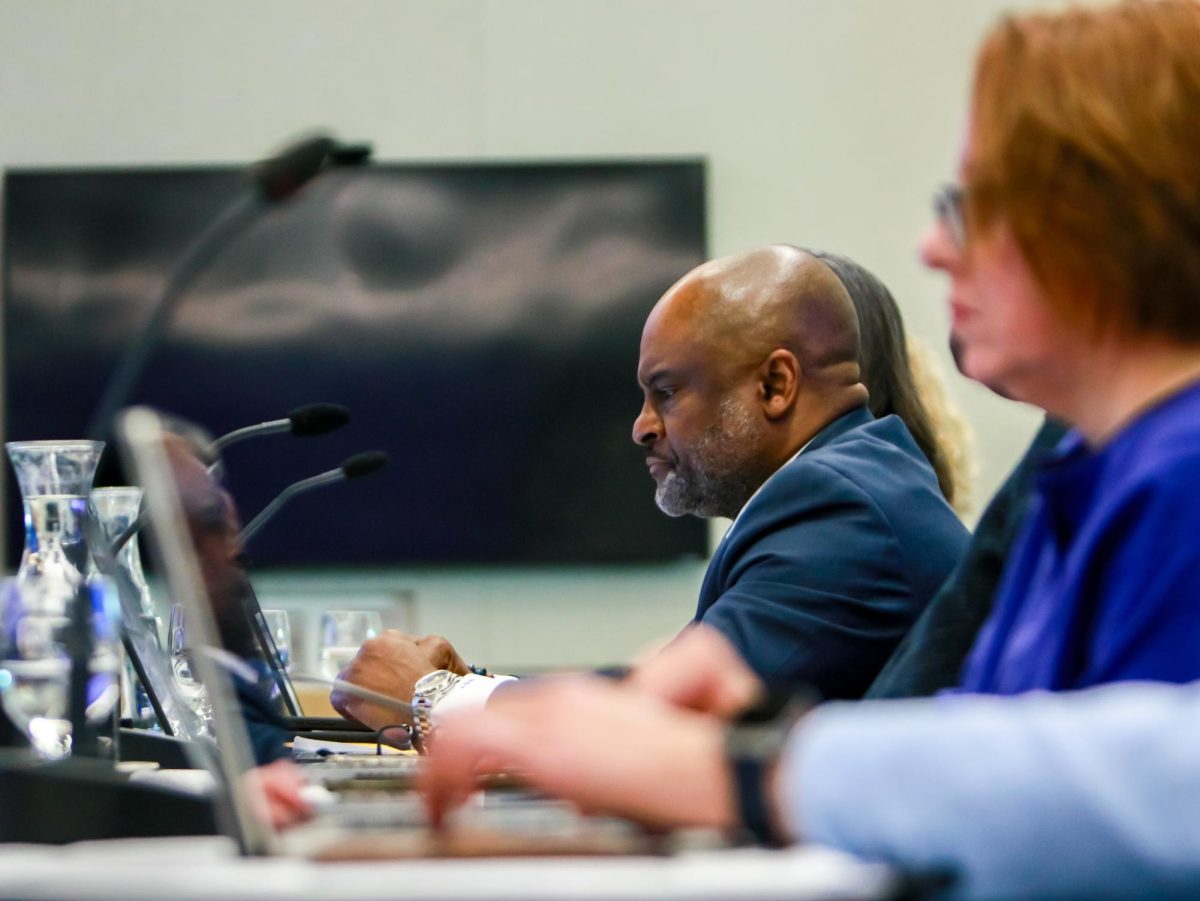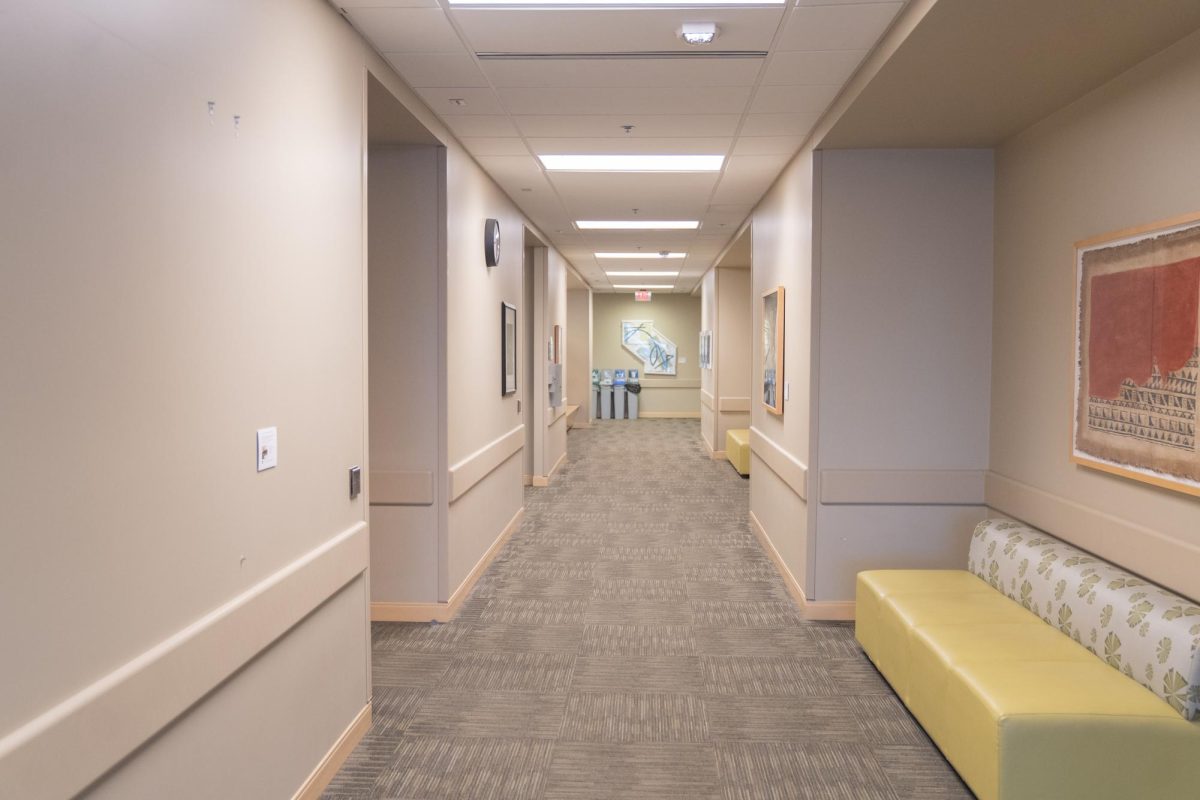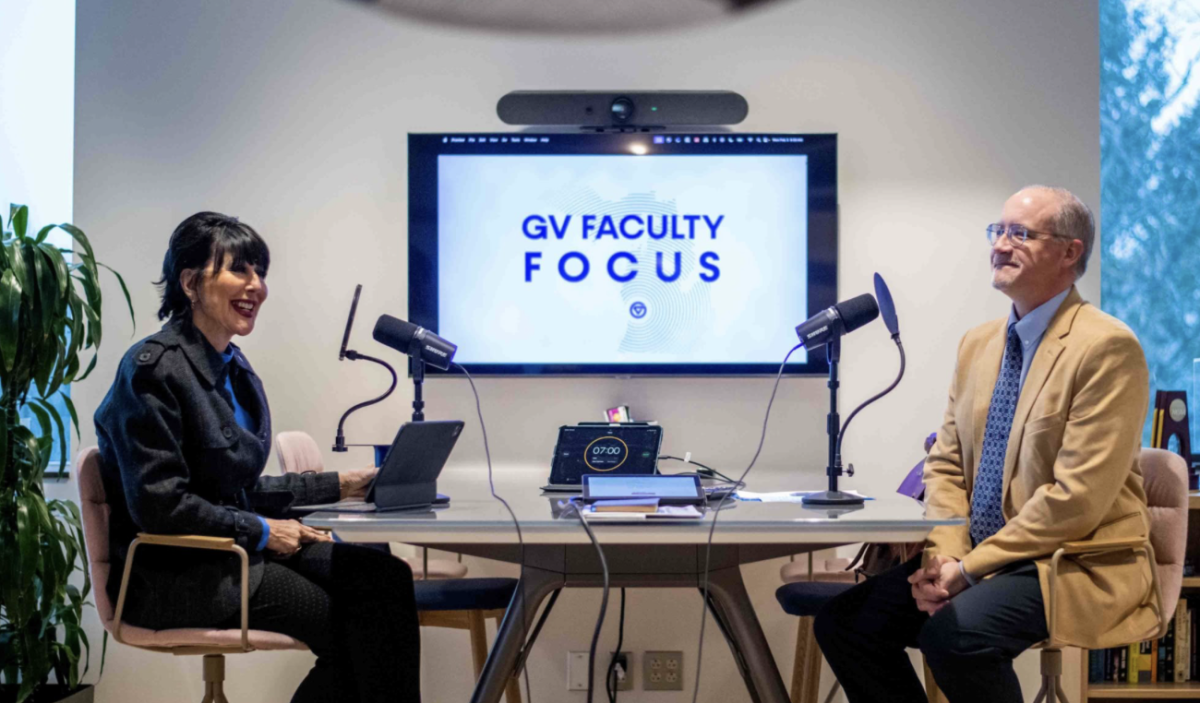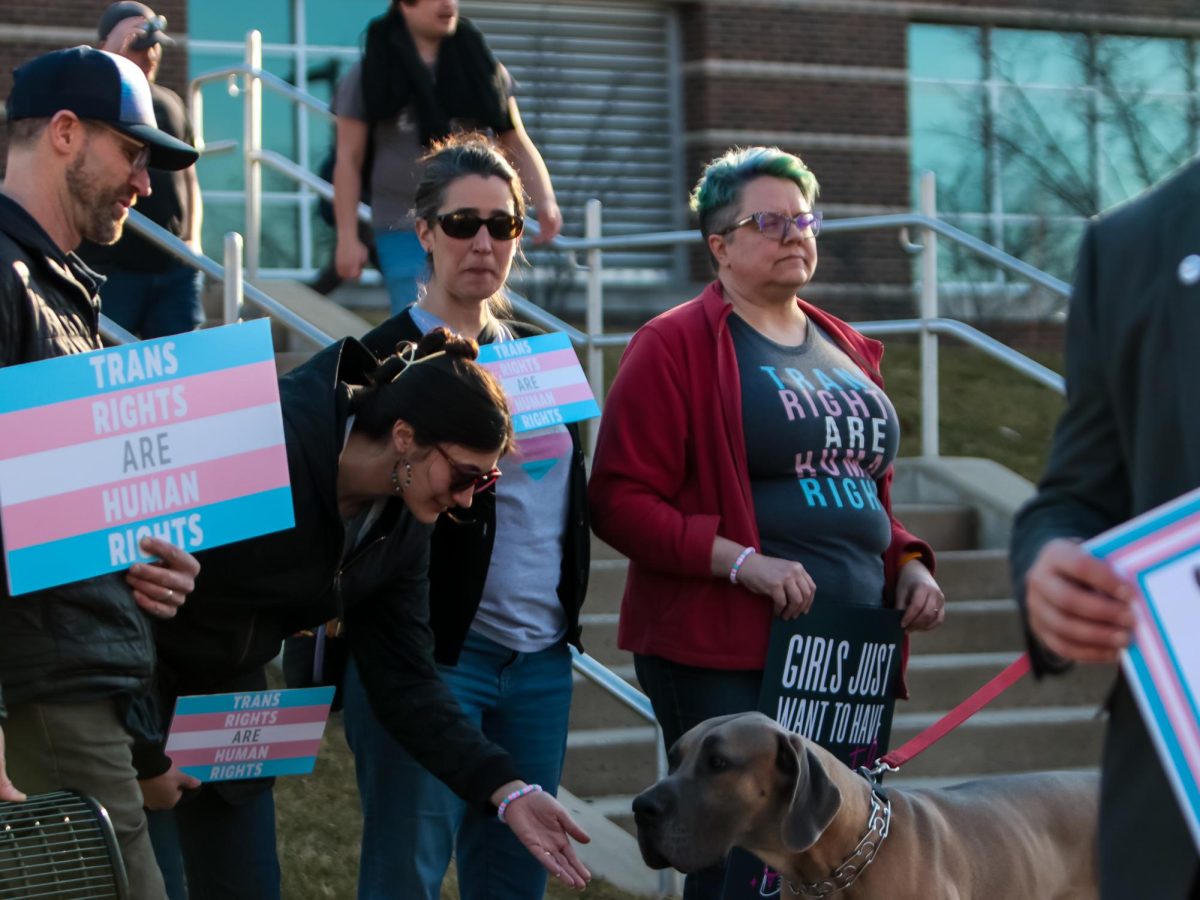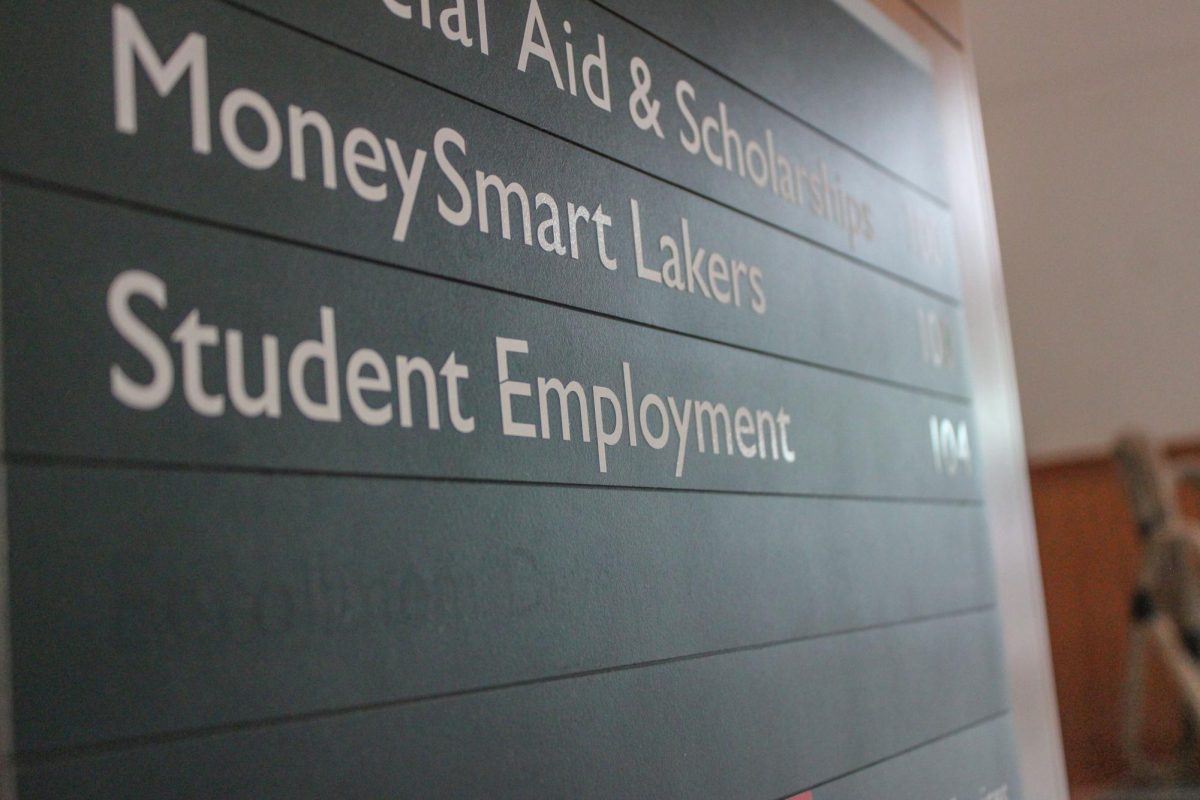The 2024 State of the Student Senate address at Grand Valley State University presented the senate body’s new structure, values and design, revealing vast adjustments rippling through the organization.
The address on Jan. 25 acted as an announcement of the “Omnibus Bill” designed by Student Senate President Quinten Proctor. The bill highlights new roles and redefines the current make up of the senate. Additionally, the address emphasized that diversity and community are the most integral parts of the senate’s legislation moving forward.
Proctor said a large graduating class going into the 2023-2024 school year led to a steady decline in membership and low engagement from students, which consequently resulted in “only 12 senators (left) out of the 50 available seats by the time of our first meeting.” Few of the 12 remaining senators had prior student leadership experience.
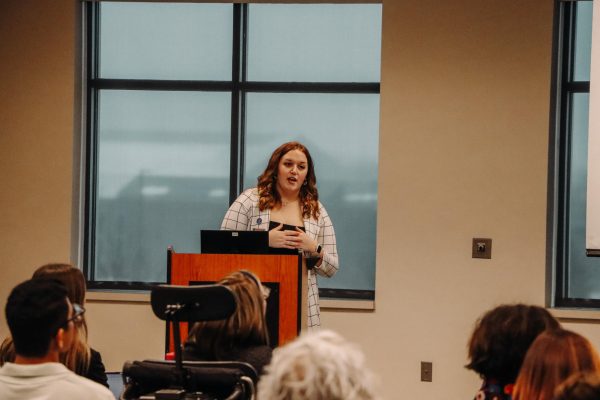
However, Magdalyn Hallead, Senate Executive Vice President, said initial reluctance for leadership roles within the body was actually instrumental in restructuring the student government.
“The future of the Student Senate, as President Proctor and the committees and I will tell you, is a complete shift from previous years,” Hallead said. “Rather than repeating old habits and typical senate issues, we’ve taken initiative to change the body for better.”
Several senators took the podium to address the culminating work of the semester-long restructuring process, which had temporarily suspended new legislation in 2023 and many aspects of the governing body’s typical operations. Through the massive restructuring Omnibus Bill, the senators completely revitalized how the organization is run– down to the function of each committee.
New roles and greater representation
The Omnibus Bill encompassed nine different proposals focused on image, representation, trust, visibility, engagement and function. The most notable changes include the introduction of a judicial branch, a chief of staff position, designated senate seats for each college within the university and a joint-ticket candidacy between potential president and vice president candidates to be elected at large by the student body during the spring senate election.
Presidential and vice presidential candidates have to have experience with the Student Senate and be in good academic standing to run for office. Proctor said he hopes the move will create more visibility and engagement for election campaigns across the board.
“We wanted to broaden (the senate’s) representation to increase student perspectives, to increase our visibility and engagement with students, (and) to improve our reputation and prestige on campus,” Proctor said. “A chief of staff position (will) help balance responsibilities, and to also have a judicial branch, which we’re renaming the judiciary committee, will create a separate, neutral party to oversee our elections processes and (misconduct) procedures.”
The chief of staff will oversee internal administrative processes and serve as the chief justice of the judiciary committee, a third party able to implement checks and balances. The vice president and chief of staff will work with the president to act as the face of the administration.
“Altogether, the Omnibus Bill is served as the framework for a brand new set of governing documents, which I spent quite a bit of time writing,” said Proctor. “Although it actually was kind of fun, in like a nerdy way.”
The new structure emphasizes the functions of each role in the senate, aiming to represent more perspectives of campus. The senate’s current model has 50 seats, with six seats reserved for incoming freshmen. The new model has 19 seats elected at large by the student body, 15 seats divided proportionally between each of the colleges at GVSU, four seats reserved for incoming freshmen, one seat reserved for an international student and one reserved for a graduate student, allowing for 40 total senators.
“The reconstruction of our (senate) body as well as our committee is a testament to our dedication to creating a future in which everyone feels seen and valued,” said Paris Lawson, Vice President of Diversity Affairs.
Following opening remarks by Vice President Hallead, representatives of each committee delivered updates regarding the achievements within their respective committees. Hallead said the senate body is the most diverse in terms of ethnic backgrounds, LGBTQ identities and various areas of academic study, like non-political science majors.
“It is crucial to build friendships and connections across the (senate) body. An inclusive, active and optimistic body leads to the progress we are looking for,” said Hallead.
Student Life budget spending report
Vice President of the Allocations Committee, Nancy Hoogwerf, said the senate spent $86,000 of the Student Life budget this year, which allocates funding for GVSU student organizations, an increase from the previous year of $81,000.
Hoogwerf said this is due to an uptick in travel within student organizations, and proves a return to normalcy after the COVID-19 pandemic.
“Last and this year’s spending was, rather, an indication of a student life that will continue to be active and vibrant, which we love to see,” Hoogwerf said. “This positive trend can be applied to many factors including club retention and growth, especially within a growing student population.”
Social Media and Community Engagement
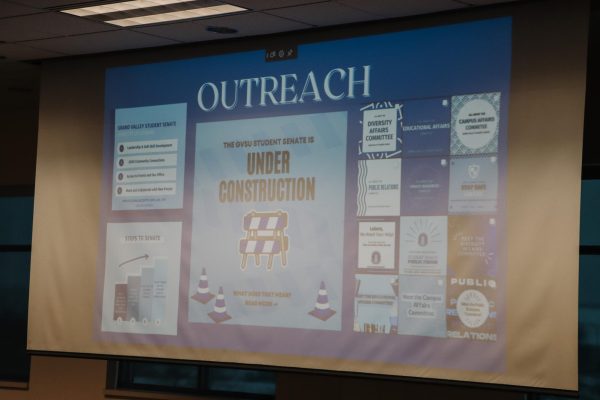
Selina Martell, Vice President of the Public Relations Committee, said the reworking of Student Senate’s Instagram allows the organization to better gauge public opinion and spotlight new legislation. The senate’s Instagram account saw over 11% growth in its following over the course of the semester. Additionally, at the time of the meeting, they saw an 885% increase in accounts engaged and an 105% increase in accounts reached over the past seven days. Martell said the Public Relations Committee is confident they will maintain this positive momentum in the engagement link with students.
“Our dedication remains unwavering, and I’m proud to be part of an organization that is so close (knit),” Martell said. “With gratitude for the collective effort, I’m eager to witness the next chapter.”
Actions to improve future of campus
The Campus Affairs Committee is working to adjust food options available for gluten free and kosher students on campus, and is heavily focused on resolving issues with campus parking.
Vice President of Campus Affairs Richard Dolnick said the committee met with the parking liaison most frequently throughout the fall and hopes to enact changes regarding parking during winter semester.
“Being a part of the Student Senate, it’s a great thing. I’m really happy with the restructuring we’ve done this last semester and I’m very, very excited to see how it plays out,” Dolnick said.
Similarly, new Senator Alee Strend said their student senate position is part of a community that can make changes at GVSU.
“I want to look into student/parent housing. I feel like being a part of the Senate, talking with the (Senate) Resources Committee, I might be able to figure out for upcoming students how to fix that,” Strend said.
Alex-Marie Ford, a brand new member in the Education Affairs Committee said she joined the senate to gain leadership skills. Ford said she felt inspired after sitting in on a meeting with the Allocations Committee.
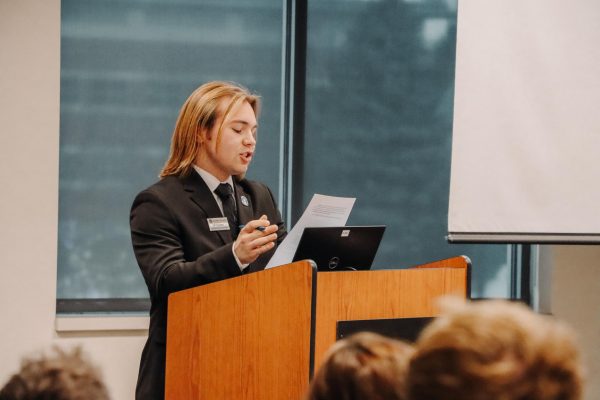
“Just to see change, to help a club (or student organization) to make a change to the community and just see how that branches out was pretty cool. I felt so privileged to be there,” Ford said.
Concluding the address, Proctor announced that the senate’s new constitution, bylaws and amendments were approved by the body during the previous General Assembly meeting and by GVSU President Philomena Mantella. The new constitution is in effect before the Student Senate election season.
“It really means a lot to put all this hard work into creating a new constitution and revitalizing the student senate for the students. I’m really excited to leave this legacy at Grand Valley moving forward,” said Proctor.





